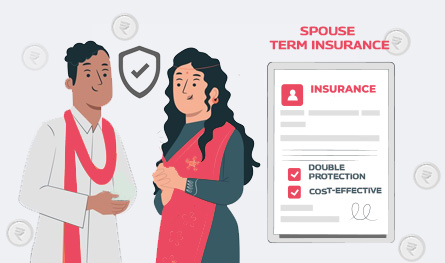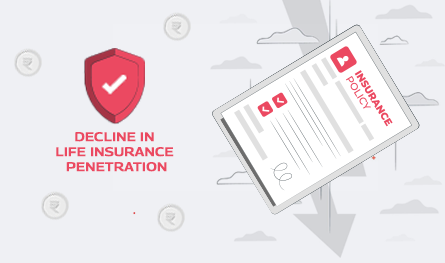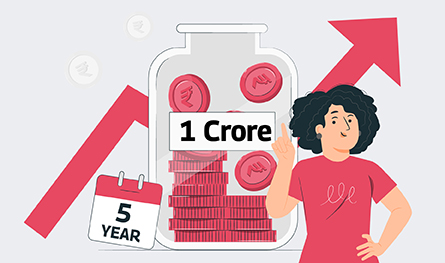11 Most Commonly Life Insurance Frequently Asked Questions (FAQs), India 2025
.png)
If you are financially independent and want to plan your finances ahead, you must buy a Life Insurance Policy. It will give you coverage and in case of your death, the nominee will get the death benefit. Nevertheless, before you purchase an insurance policy, you must go through some insurance questions. Here are some of the life insurance FAQs.
.png)
11 Frequently Asked Questions (FAQs) Related to Life Insurance Policy in India
1. What is life insurance policy?
Life insurance policy is a contract between an insurance company and the policyholders. Policy benefits are paid by the insurance companies to the policyholders. If the policyholder passes away, the nominee is paid the benefits. However, to avail of the benefits, the policyholders must pay the premium on a regular basis.
2. Why life insurance is so useful?
Everyone needs to buy a life insurance policy as it ensures the financial stability of you and your family. Even if you are not there anymore, an insurance policy will help take care of the financial needs of the family. So, whether you are there or not, you will not have to be bothered about the financial future of your family.
3. How the amount of life insurance cover should be decided?
The life insurance coverage should be at least eight times your annual income. The maturity benefits depend on the premiums that you pay for the policy during the term. The amount depends on various factors which include your lifestyle, income, regular expenses, and debt obligations.
4. What are the various benefits of life insurance?
Life insurance comes with several benefits such as financial security for your family in your absence, a loan against your life insurance policy, and tax benefits of INR 1.5 Lakh under Section 80C.
5. Will I get different options to pay the premium amount?
Yes, as you buy a life insurance plan, you can choose from the various options to pay the premiums such as monthly, quarterly, half-yearly, or annually. You also may come across some life insurance plans that may give you the option of a one-time payment of premium.
6. What if I skip paying the premium on time?
If you do not pay the premium on time, you will get 30 day grace period from the insurance company. If you pay each month, the grace period will be of 15 days. If you do not pay the premiums even during the grace period, you will not be able to claim the benefits and the policy will become defunct. If you want to restart the coverage, you would be required to clear all the overdue payments.
7. Will I get any tax benefits on buying a life insurance policy?
Yes, as you buy a life insurance policy, you will get tax benefits under Section 80C of the Income Tax Act, 1961.
8. How do we calculate life insurance premiums?
To calculate the insurance premium, the following factors are considered.
- Age:The primary factor that is considered while calculating a life insurance premium is age. Young people are considered to fall sick lesser. This will make them acquire medical expenses lesser. As a result, the total premium amount gets lesser.
- Coverage type: To buy an insurance policy, you will get several options. Depending on how comprehensive your coverage is, the premium rate is decided.
- Coverage amount:The premium amount depends much on the amount of coverage, which is also called sum assured. If the coverage amount is higher, the premium amount will certainly be higher.
- Personal information: This is another factor that is taken into account while calculating the premium of a life insurance policy. Information like gender, marital status, occupation, smoking habit, annual income, and the place where you live are considered.
You can use a policy premium calculator to find out the premium that you will be required to pay upon buying a life insurance policy.
9. Is buying a life insurance policy mandatory?
It is not mandatory for anyone to buy a life insurance policy. However, as you grow older and have your family, you would want to take care of them at every stage of life. This is when you will find a life insurance policy helpful. Even if you are not there with your family anymore, you will not have to worry about their financial well-being.
10. Will I get tax benefits for discontinuing a ULIP?
In the case of a Unit Linked Insurance Plan, you have to keep paying a premium for 5 years to receive tax benefits. If you stop paying premiums before 5 years from the date of commencement of the policy, you will not get any tax benefit.
11. Is there any tax deduction on the maturity benefit of life insurance?
There is no tax deduction on the maturity benefit of your life insurance policy.
Life insurance is a contract between an insurance company and the policyholders. Policy benefits are paid by the insurance companies to the policyholders. If the policyholder passes away, the nominee is paid the benefits. However, to avail of the benefits, the policyholders must pay the premium on a regular basis.
Everyone needs to buy a life insurance policy as it ensures the financial stability of you and your family. Even if you are not there anymore, an insurance policy will help take care of the financial needs of the family. So, whether you are there or not, you will not have to be bothered about the financial future of your family.
The life insurance coverage should be at least eight times your annual income. The maturity benefits depend on the premiums that you pay for the policy during the term. The amount depends on various factors which include your lifestyle, income, regular expenses, and debt obligations.
Life insurance comes with several benefits such as financial security for your family in your absence, a loan against your life insurance policy, and tax benefits of INR 1.5 Lakh under Section 80C.
Yes, as you buy a life insurance plan, you can choose from the various options to pay the premiums such as monthly, quarterly, half-yearly, or annually. You also may come across some life insurance plans that may give you the option of a one-time payment of premium.
If you do not pay the premium on time, you will get a 30 day grace period from the insurance company. If you pay each month, the grace period will be 15 days. If you do not pay the premiums even during the grace period, you will not be able to claim the benefits and the policy will become defunct. If you want to restart the coverage, you would be required to clear all the overdue payments.
Yes, as you buy a life insurance policy, you will get tax benefits under Section 80C of the Income Tax Act, 1961.
To calculate the insurance premium, the following factors are considered.
Age: The primary factor that is considered while calculating a life insurance premium is age. Young people are considered to fall sick lesser. This will make them acquire medical expenses lesser. As a result, the total premium amount gets lesser.
Coverage type: To buy an insurance policy, you will get several options. Depending on how comprehensive your coverage is, the premium rate is decided.
Coverage amount: The premium amount depends much on the amount of coverage, which is also called sum assured. If the coverage amount is higher, the premium amount will certainly be higher.
Personal information: This is another factor that is taken into account while calculating the premium of a life insurance policy. Information like gender, marital status, occupation, smoking habit, annual income, and the place where you live are considered.
You can use a policy premium calculator to find out the premium that you will be required to pay upon buying a life insurance policy.
It is not mandatory for anyone to buy a life insurance policy. However, as you grow older and have your family, you would want to take care of them at every stage of life. This is when you will find a life insurance policy helpful. Even if you are not there with your family anymore, you will not have to worry about their financial well-being.
In the case of a Unit Linked Insurance Plan, you have to keep paying a premium for 5 years to receive tax benefits. If you stop paying premiums before 5 years from the date of commencement of the policy, you will not get any tax benefit.
There is no tax deduction on the maturity benefit of your life insurance policy.

Author Bio
Paybima Team
Paybima is an Indian insurance aggregator on a mission to make insurance simple for people. Paybima is the Digital arm of the already established and trusted Mahindra Insurance Brokers Ltd., a reputed name in the insurance broking industry with 21 years of experience. Paybima promises you the easy-to-access online platform to buy insurance policies, and also extend their unrelented assistance with all your policy related queries and services.
Other Life Insurance Products
Latest Post

Marriage is built on shared dreams, countless compromises, and a commitment to protect each other through thick and thin. While love, trust, and communication form the emotional foundation of marriage, a little bit of financial planning doesn’t hurt either. This is exactly where spouse term insurance steps in — a simple yet powerful way to safeguard your future together.


Renewing a car insurance policy before expiration is crucial for car owners. A car insurance policy is not only mandatory for driving a car on Indian roads but also important to ensure the continuous availability of benefits under the policy. Learn more in this blog


When was the last time you thought about getting a life insurance policy? If your answer is “I will get to it someday”, you are not alone. Despite India growing as one of the fastest expanding economies, life insurance penetration across the nation has remained surprisingly low. Life insurance penetration fell slightly to 2.8% in FY24, down from 3% in the previous year.


If you are looking at investment policies offering INR 1 Crore in 5 years, we talk about some excellent plans in this post to help you choose the best one and reach your goal. However, it is important not to get swayed. Doing proper research and taking advice from financial or insurance advisors is important. Learn about such investment plan in this post.




.png)
